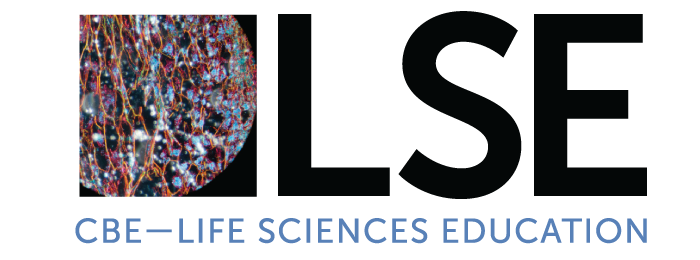Evidence-Based Teaching Guides
Group Work
This guide presents research studies and resources related to group work. Links to key articles are accompanied by condensed summaries organized by teaching challenges, and actionable advice is provided in an instructor checklist.
Inclusive Teaching
This guide presents research studies and resources related to inclusive teaching. The guide defines inclusive teaching as teaching practices that make the class environment and interactions welcoming and that provide opportunities for success for all students. The guide focuses primarily on inclusivity across race, ethnicity, and gender, but the ‘deep teaching’ model on which it is based provides a philosophy that can guide inclusion across other differences.
Peer Instruction
This guide presents research studies and resources related to peer instruction, a pedagogy commonly associated with personal response devices in which students answer questions, engage in peer discussion, and discuss responses with the whole class. Links to key articles are accompanied by condensed summaries organized by teaching challenges, and actionable advice is provided in an instructor checklist.
Modeling in the Classroom
This guide presents research studies and resources for incorporating models and modeling into their classrooms. The guide discusses modeling as a core scientific practice that enables student development of systems thinking skills and understanding of biological concepts. The guide describes a variety of model types including phylogenetic trees, simulations, animations, diagrams, conceptual models, concept maps, and tactile models supported by summaries of and links to articles and resources.
Student Metacognition
This guide presents research studies and resources related to metacognition, which is awareness and control of thinking. The guide describes ways in which instructors can influence student metacognition by supporting student learning strategies, encouraging students to monitor and control their learning, and promoting social metacognition during group work. An instructor checklist and a special collection of four strategies to implement in any course offer practical recommendations for fostering metacognition.
Problem Solving
This guide presents research studies and resources related to teaching problem solving. The guide describes theoretical underpinnings for two different approaches to teaching problem solving: instruction followed by problem solving and problem solving followed by instruction, with specific examples described for each. In addition to summaries of and links to articles supporting these approaches, the guide provides an instructor checklist to summarize options.
Learning Objectives
This guide presents research studies and resources related to learning objectives that serve as the foundation of course design. Done well, they define the focus of assessments, help structure classroom practice, and convey the instructor expectations of what students should know and be able to do after completing a course of study. The guide contains condensed summaries of key research findings organized by recommendations for writing and using LOs, summaries of and links to research articles and other resources, and actionable advice in the form of a checklist for instructors.
Graphing in Biology
This guide presents research studies and resources related to graphing in biology to help inform instructors’ decision-making in how to teach graph reading, interpretation, construction, and evaluation within the discipline of biology. This guide contains condensed summaries of key research findings on six instructional practices that instructors can utilize when designing graphing activities: using data to engage students, teaching graphing grounded in the discipline, practicing explicit instruction, using real world “messy” data, utilizing collaborative work, and emphasizing reflection. Each instructional practice contains summaries of and links to research articles and other resources, and actionable advice in the form of a checklist for instructors.









